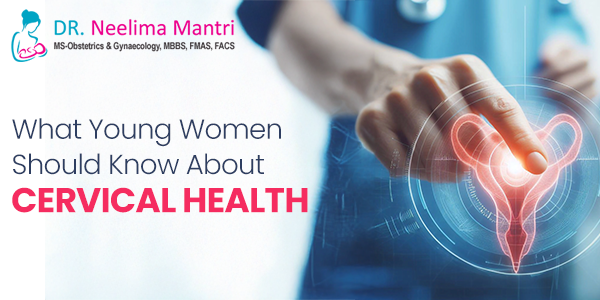When was the last time you thought about your cervical health? If the answer is never or barely, you are not alone. Many young women focus more on fitness, skincare and mental well-being, but when it comes to reproductive health, especially the cervix, it often takes the back seat. However, the cervix plays a crucial role in overall health, and taking care of it is just as important as eating well or staying active.
From infections to cervical cancer prevention, understanding potential risks, prevention strategies and scheduling regular screening can make all the difference. This article will walk you through everything you need to know.
The Cervix and Its Role
The cervix is the lower, narrow part of the uterus that connects to the vagina. Think of it as a protective gatekeeper. It helps keep harmful bacteria out, produces mucus to aid fertility and even expands during childbirth. But just like any other part of the body, it requires care and attention to be healthy.
The cervix is a small but mighty part of the female reproductive system and plays a crucial role in overall wellness. However, misconception and lack of awareness will keep many women from taking necessary steps to protect it. Talking about cervical health should not be embarrassing or taboo. Share what you learn with friends and encourage each other to schedule check-ups with the best lady gynaecologist in Mumbai.
Common Cervical Health Issues
Many women live with a healthy cervix, but certain conditions can arise. Some without giving you a heads-up. Here are some of the common ones:
●Infection. The cervix is prone to bacterial and viral infections, including STIs like chlamydia and gonorrhoea, which can lead to severe complications if not treated.
●Cervical dysplasia: This is when there’s abnormal cell change in the cervix, often caused by HPV, and if not monitored, it can lead to cervical cancer.
●Cervical cancer: This is one of the most serious cervical conditions. It is often linked to persistent HPV infection. The good news, however, is that it is preventable with regular screening and vaccination.
HPV and Cervical Health
One thing every young woman should know is that the Human Papillomavirus (HPV) is the most commonly sexually transmitted infection. Most times it clears up on its own, but some high-risk strains can cause cervical cancer. The HPV vaccine protects against the most dangerous strains of the virus and is most effective when taken in early adolescence, although young adults can still benefit from it.
Screening and Early Detection
Cervical cancer does not develop overnight. It will take years for abnormal cells to turn into cancer, which is why it is important to schedule a regular screening.
1.Pap smear (Pap test): This test will detect abnormal cervical cells before they turn into cancer. Most women should start getting pap smears around age 21 and follow their doctor’s recommendations.
2.HPV Test: The test checks for high-risk HPV strains. A pap smear might be a little uncomfortable, but it is quick, and the benefits outweigh the current discomfort.
Preventive Measures and Lifestyle Choices
Apart from screenings and vaccinations, some of the other things you can do to keep your cervix healthy include:
●Practice safe sex: Condoms do not eliminate, but they reduce the risk of HPV and other infections.
●Do not smoke: Smoking would weaken the immune system, which makes it harder for your body to fight off HPV infections.
●Eat a balanced diet: To support cervical health, eat foods rich in vitamins A, C, and folate.
●Listen to your body: When you have unusual bleeding, pelvic pain, or discomfort, do not ignore it. Check it.
Conclusion
Cervical health is an important part of your overall well-being. Getting vaccinated, staying on top of screenings, and making smart lifestyle choices can help your health. So, when was your last check-up? If it has been a while, consider booking an appointment today. If you have any questions or need further clarification, you can connect with one of the best gynaecologists in Mumbai, Dr Neelima Mantri.



